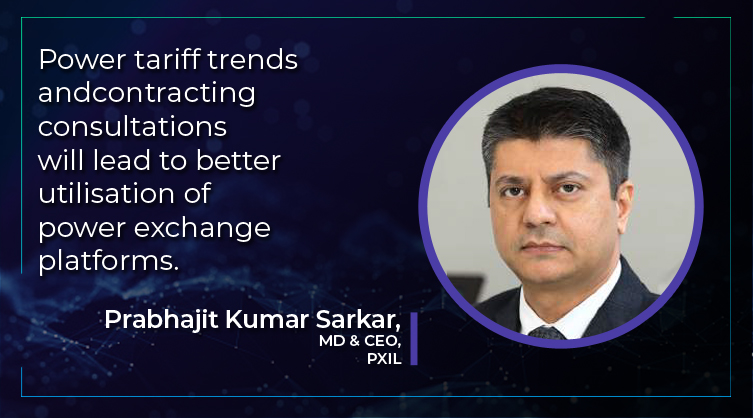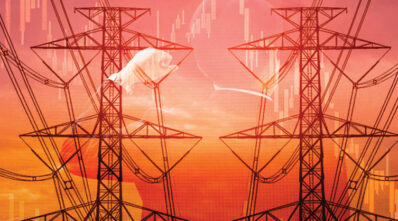Energy security and capacity expansion are top goals for power sector
By Admin February 3, 2023 11:56 am IST
By Admin February 3, 2023 11:56 am IST

There has been a push to transition away from this reliance on fossil fuels and toward energy security, which in the long run would facilitate energy tariff stability, says Prabhajit Sarkar, MD & CEO of PXIL.
How do you rate the performance of the power sector in 2022?
Performance index 2022 has been significant for India’s electricity sector, with several new initiatives being taken to strengthen the finances in the sector as well as accelerate the transition towards sustainable and environmentally benign growth.
Pending dues for DISCOMs have become a concurrent concern over the last few years. In January 2022, the total dues to power generators were around ₹1.21 lakh crores. To surmount this issue, the Ministry of Power implemented the Late Payment Surcharge and Related Rules 2022, which has led to the reduction of the overdue payments to half, i.e., ₹0.62 lakh crores, by January 2023.
This year also saw a renewed focus on energy security and a need to set priorities for the nation, including updating the Nationally Determined Contributions, which have now been restated to target 50 percent of all incremental capacity from renewable energy by 2030.
What are the ongoing trends in India’s power trading and exchange business?
The purchase of power through power exchanges through all types of contracts, including DAM, RTM, and TAM, has reached 7.7 percent of the total electricity consumption. This growth has mostly been on the back of transparency in the pricing of power as well as a payments framework that has ensured payments are made and received daily without any defaults.
There is a strong impetus to utilise the Exchange platform, through the introduction of more contracts of various tenures and segments. The Draft National Electricity Policy has already mentioned the need to enhance exchange-based transactions to 25 percent of the total electricity consumption from the present levels.
New contracts that are in regulatory consultations are ancillary services market contracts, capacity contracts, and increased tenure with longer tenure. contracts up to 11 months ahead to meet the transaction requirements of market participants.
We believe all these efforts will soon translate into an overall improvement in the utilisation of power exchange platforms in the country.

What major challenges does the Indian power sector face?
Transition to clean energy usage and energy security are the two main drivers for policy measures in the Indian power sector. In India, there has been a continuous transition in primary energy usage from wood to coal to oil and gas and now to renewables over the last few decades.
During this period of the energy transition, which may take the better part of the coming decade, coal and gas will remain relevant even though the share of renewables will have an upward trend. Fuel supply management for generating plants and access to markets for the transaction of power would play a crucial role in ensuring that the increasing demand of a growing economy is met without much volatility.
The other big challenge is trying to ensure the continued financial viability of the distribution companies. This would require a combination of efforts across the spectrum, including improvements to the tariff setting process to reflect the actual cost of power, mechanisms to improve AT&C losses with specific improvements in metering, billing, and collection, access to a vibrant power market to meet their short- and long-term power requirements; CAPEX in their power networks and systems to improve technical parameters and reduce technical losses; etc. Initiatives like the Revamped Distribution Sector Scheme (RDSS), which includes large-scale prepaid smart meters along with the implementation of a market mechanism like Market Based Economic Dispatch (MBED), would be truly beneficial for the sector.
We use cookies to personalize your experience. By continuing to visit this website you agree to our Terms & Conditions, Privacy Policy and Cookie Policy.